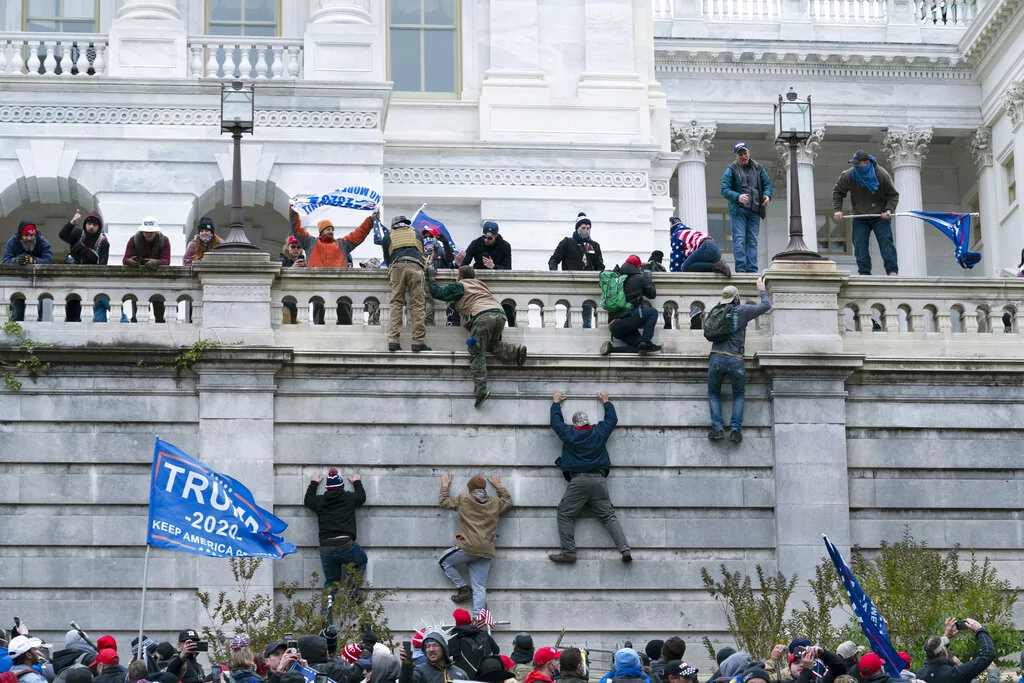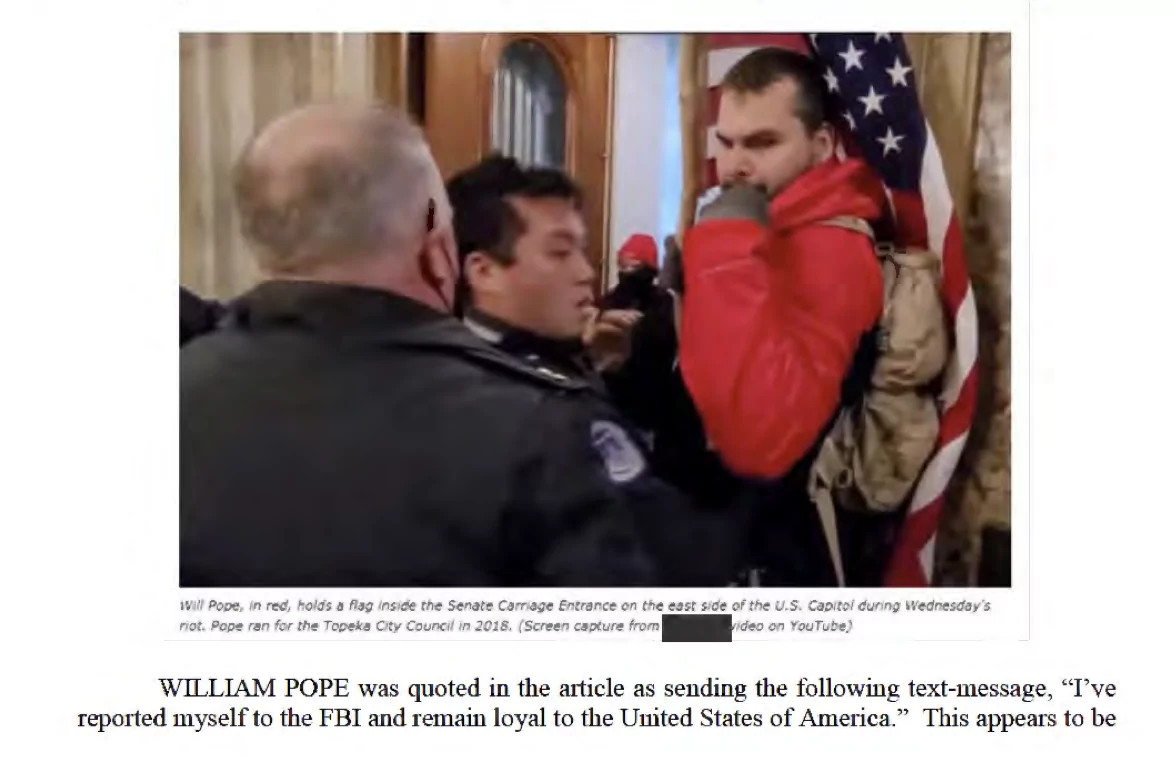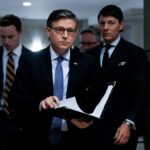
Several defendants involved in the Jan. 6, 2021, Capitol riot have requested judges’ permission to attend President-elect Donald Trump’s inauguration on Jan. 20, 2025.
These requests, tied to Trump’s promises to pardon Capitol riot participants, have sparked legal and ethical debates in federal courts. Trump, who has repeatedly called Jan. 6 “a day of love” and described participants as “patriots,” vowed to review clemency and potential pardons for those charged or convicted within hours of taking office next month.

In recent weeks, some defendants have cited these assurances as grounds for delaying trials and even requesting travel allowances to Washington, D.C., for the event.
Here are some of the defendants who have sought to return to the site of their alleged crimes in light of Trump’s return.
William Pope: A man representing himself seeks to attend Trump’s big day
William Pope, of Kansas, is awaiting trial for civil disorder after he carried an American flag inside the Capitol.
Representing himself, Pope became the latest defendant from the riot on Sunday, asking to attend the inauguration. He has also sought additional delays in his trial, arguing that Trump’s promised pardons make the proceedings unnecessary.

U.S. District Judge Rudolph Contreras has already delayed Pope’s trial to late February, citing the need for resource conservation amid the uncertainty surrounding Trump’s administration’s handling of Jan. 6 cases.
Eric Peterson: The first defendant granted access to the inauguration
Eric Peterson, a Missouri resident who pleaded guilty to a misdemeanor for unlawfully entering the Capitol, was the first defendant to receive judicial approval to attend the inauguration.
U.S. District Judge Tanya Chutkan, known for presiding over several Jan. 6 cases and Trump’s now-dismissed 2020 election subversion case, granted his request, citing Peterson’s nonviolent conduct. Peterson faces up to one year in prison, with sentencing scheduled for Jan. 27.
Peterson’s attorney highlighted Trump’s public pardon promises as a significant factor in the decision, arguing that the anticipated clemency reduces any concerns about his attendance.
Russell Taylor: Invited by former Utah congressman
California resident Russell Taylor, who pleaded guilty to felony conspiracy for organizing efforts to disrupt Congress’s certification of the 2020 election, has requested permission to attend the inauguration with his family. Taylor says he received an invitation from retired Utah Republican Rep. Chris Stewart.
The Justice Department opposes Taylor’s request, pointing to his role in leading a mob that overran police lines near the inaugural stage on Jan. 6. A decision on his motion is pending.
“He is asking for the Court to bless his desire to return to the scene of the crime, and the Court should not look past his criminal conduct the last time he was on Capitol grounds,” the U.S. attorneys told U.S. District Judge Royce Lamberth.
Taylor received credit from Lamberth when he agreed to enter a plea deal, though the judge has not yet ruled on whether he may attend the inauguration.
Cindy Young: DOJ fearful over past rhetoric
Cindy Young, a New Hampshire woman convicted of multiple misdemeanors for her involvement in the riot, is also seeking to attend the inauguration.
Young’s filing in court states she “poses no threat of danger to the community and she is not a risk of flight.”
But the DOJ has strongly opposed her request, citing her inflammatory statements about retribution against Jan. 6 prosecutors and concerns for public safety.
Judges have issued varied responses
The courts have diverged in their handling of these cases. Judges Carl Nichols and Contreras have granted delays, referencing the potential for pardons and the strain of jury trials, according to Politico.
However, other judges, including U.S. District Judge Paul Friedman, have dismissed such requests as speculative, insisting the judiciary must remain independent of executive actions.
CLICK HERE TO READ MORE FROM THE WASHINGTON EXAMINER
As Trump’s inauguration approaches, the fate of these defendants’ requests foreshadows Trump’s imminent confrontation between those who say he should avoid sweeping pardons for these defendants in his first hours in office, and those who want to see pardons for all defendants involved.
President Joe Biden has generated controversy over his own pardon powers, such as the 11-year scope of the pardon given to his son, Hunter Biden, and his recent decision to commute the death sentences of 37 convicted criminals on death row.





